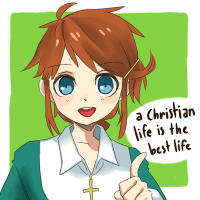Georgian Lessons #4: Chaos And Order

This Tbilisi courtyard may look abandoned, but the hanging clothes reveal that someone is living here.
Tbilisi, as I mentioned in my Gravity From Above diary, was a rude shock to my American system at first. It just seemed like pure chaos on some level that I had never encountered before. Travelers to India, Africa, certain parts of South America will I’m sure bring back even more intense observations than mine. Nevertheless I have traveled most of America, much of Canada, maybe two thirds of Europe, as far as Romania, and to Juarez, Mexico. I’ve seen things that gave me a sense of culture shock before, but nothing on the level of Tbilisi, Georgia.

Cats at home on the streets Tbilisi.
It was swirling blooming confusion of signs and cars, cats, people on the streets and a certain casualness that I didn’t get at first. The spoken language was not related to anything else outside of the Caucasus Mountains. (For those unaware Georgian is not Russian at all.) But not only that the actual alphabet just seems like hooks and squiggles. (I’ll do an addendum on signs and the language later.)

An older woman making her way through an intersection. (The cars were moving.)
Then there is traffic. I don’t know where to begin. It seems like normal traffic at first glance. But then you slowly begin to realize that there is no traffic control. It a city of one million and one hundred thousand I counted maybe four or five stoplights. The police rarely seem to stop anyone. Yet you hear the barking of squad car loudspeakers all the time: A sound that, for these American ears, means pull over immediately. (Subtext: We’ve got guns and your license plate number and you’ll never get away.) But here? I was told they were just giving instructions. Hey you!!! Turn left!! ??? At least twice my life was in peril looking for a way to get across speeding highway traffic. Later I was told I should have used the underground passages. Which I would have used if I had seen anything like a sign I could read. Mothers with families, old ladies, giggling teen girls, men who looked unconcerned, all just simply walked in front of cars and they stopped. The key I realized was to see where the car was. Judge your luck. And go! But do NOT look the driver in the eye. If they think you see them they won’t stop. (Which I discovered was the opposite of France where eye contact stops the oncoming traffic.) I eventually learned to walk between moving cars, putting my best New York City moves to good use. And as I did my ballet around the vehicles I thought half-jokingly “Maybe this is why Georgians are such good dancers?”

No taxes. No regulation. Everything happens on the streets.
Another thing that leapt out at me like the swipe of a bear’s claws was the street life. You see everything in Tbilisi on the streets, the good and the bad. People sell food. I don’t just mean vendors. I mean if a old man from the edge of the city in a village has a dozen extra eggs he’ll come down to the streets with his twelve eggs and wait as people walk by. And he’ll sell them one at a time if he has to. I saw a woman day after day with freshly plucked chickens selling them on the street, no refrigeration needed evidently. People sell fruit, vegetables, odds and ends. Booksellers seem to crop up everywhere, with Georgian books, Russian books and the occasional English title. And don’t even get me started on the huge swap meet at The Dry Bridge near the river. I couldn’t even begin to describe it, except to say that THAT was reason enough to visit Tbilisi all by itself. (I made a video of it that takes nearly a half hour to watch as a strait walk through.)

Walking along I looked down into a basement. This was a bookstore. It was actually far darker down there than this photo shows.
But back to the streets. Another thing that was quite common to see was older folks, mostly women, begging on the streets. And since my own elderly mother recently passed on this hit me strongly. A sign of obvious trouble with social welfare systems. It doesn’t matter what side of the political spectrum you are on in the USA. This is something you don’t want to see. In fact in America we have large industries dedicated to taking care of the aged. Or is it keeping them out of sight? The more I looked at these folks on the street the more I adjusted my eyes. It never became a good thing to me, as it isn’t to the Georgians. Yet there was something about seeing everything on the streets. There was less shame about it. And people did contribute to these people. It didn’t take too much money to fulfill ones daily needs. I reckoned that if I was really desperate I could live on less than five dollars a day for food easily. And stay full. The more I saw these old women, the more I realized that they tended to occupy one area regularly and they had people who would give to them regularly. Which was similar to the homeless in New York City. The difference is that in New York you rarely saw people who reminded you of your mother or grandmother on the streets.

It was not raining. A women with a plastic tub for begging. She was one of the few that hid their faces as they asked for change.
Other things: Construction was going on everywhere. And ancient buildings sat in habitable decay everywhere. (See the photo at the top.) And there were nice stores all over. And one street might seem fashionable and next to it might seem like the end of the world. The sidewalks were uneven. Stores sprouted from holes in the wall. Traffic never stopped swirling. I only mastered about half of the alphabet while I was there, but there was Latin script in enough places to figure out how to navigate. The metro made sense. The buses were almost impossible. And I could go on and on but I think you get the idea.

There were many sidewalks like this one.
But here’s what I began to see, and this meshed with my observations about Orthodox culture, my American culture is far more organized than I ever realized before. No one seems to collect taxes on these street vendors that I can see, yet they can make extra money for themselves. We have rules for absolutely everything: Protecting consumers, traffic flow, jaywalking, safety, even our children live in an age appropriate world. Even the most laissez faire anarcho-whatever in North America has never experienced anything like this. We all want a net to catch us when we fall. And yet I looked at this and realized that on some level this was more human. There was a net actually. The government provided some amenities and was learning to do more. But the net, the real net, was a thing called family, extended family, and a network of acquaintances. And I was actively beginning to appreciate this chaos. Because the more I looked at it the more I could see a different kind of order, almost invisible to the outsider, holding up the structure of Georgian society.

How to sell clothes in Georgia.
Now there many troubles in Georgia. As you can see I’m not romantic about the country. And there are many deeper and darker layers of problems I am not qualified to address. But there is one area I can discuss. As Georgia enters the contemporary world it will, and has already begun to, experience the problems of a highly technocratic postmodern age. I’ll deal with that next time.

A typical electrical pole in Tbilisi.
But let me say this about my time in Tbilisi. I walked down dark streets at night. Houses all turned away from the road sequestered in courtyards. In all of my wanderings I never ever felt endangered. Never once felt that someone was watching me in a predatory fashion. Bucharest, Prague, Berlin, Frankfurt, Paris, London, New York, Seattle, even Juneau here in Alaska all have given me more of a shiver of unease than anything I experienced in Tbilisi walking through the dark streets at night. Our order seems a bit like a mirage when I consider it. We live in a society where we thrive on rights. And while rights and the law are crucial to living, I can’t help feeling that often we only have rights left. And if you step on them, then comes the crush of the rules, of the law. Everyone wants what’s theirs. Maybe in Georgia they are a little less concerned with getting everything due to them. Maybe after their extremely rocky history many are glad to simply be here.

The sense of bewilderment even extended to the large cemetery. Once I found a way into it there were no strait paths to anything as far as I could see.
Come back again soon.
Byrne Power
Haines, Alaska
November 23rd 2016








Hello Mr. Power, seems this just cannot keep me from reading the better site of your travels. Perhaps your friends will excuse this interference, but here no political spoiling or access from others. I will keep reading, too bad, sharing ideas is so difficult on FB. My husband asked me if writing bits and pieces of literature is important, well if not just consider this a respectful writer as others are. atk
November 26, 2016 at 6:03 PM
Thanks Annette. Yes this is a different sort of site. Comment is encouraged!
November 26, 2016 at 6:11 PM
Byrne, Your photographs and the sideline travel bit do help one understand the different life the words-American live compared to Georgian life, sort of reminds me of Mexico. Border towns there are so poor, but yet very rich in life movement art religion all mixed into the dirty streets and homes on the hill of tin. What do the Georgian’s read? My sister who lives part time in Thailand, and Oman with her husband, describes television from Al Jazeera as a important source for conceptual oddities of Muslin life, busy and fast so dreadful that an American finds too much activity not understandable. At first at least. She also mentioned that most of the World citizens do not view the USA as a positive country?
All of this is jumbled talk of mine. needs improvement. Annette
November 29, 2016 at 11:18 AM